Share
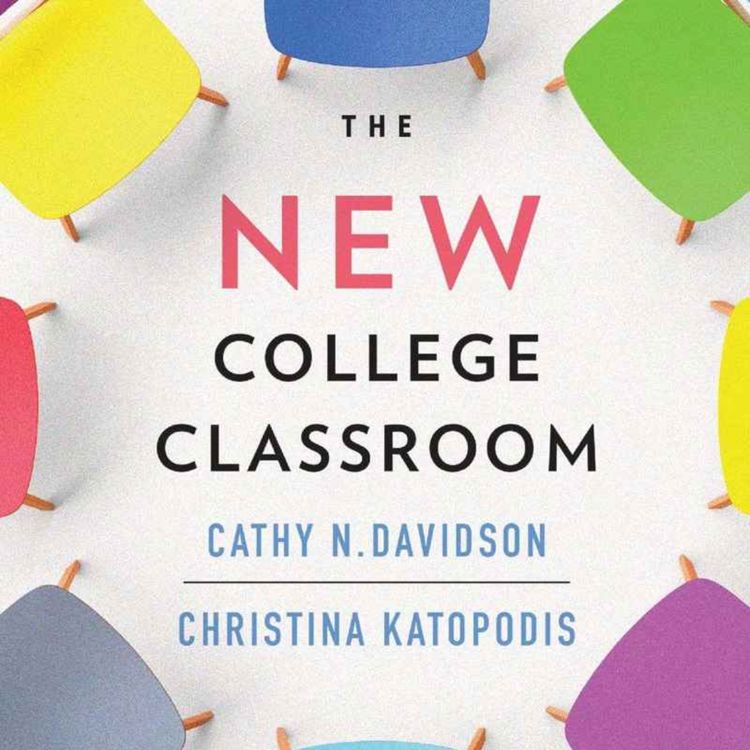
No Such Thing
The New College Classroom
Christina Katopodis, PhD, is a Postdoctoral Research Associate and the Associate Director of Transformative Learning in the Humanities, a three-year initiative at the City University of New York (CUNY) supported by the Mellon Foundation. She is the winner of the 2019 Diana Colbert Innovative Teaching Prize and the 2018 Dewey Digital Teaching Award. She has authored or co-authored articles published in ESQ: A Journal of Nineteenth-Century American Literature and Culture, ISLE: Interdisciplinary Studies in Literature and Environment, MLA’s Profession, Hybrid Pedagogy, Inside Higher Ed, Synapsis, and Times Higher Ed.
The learning process is something you can incite, really incite, like a riot. - Audre Lorde
Cathy N. Davidson is the Senior Advisor on Transformation to the Chancellor of the City University of New York (CUNY), a role which includes work with all twenty-five campuses serving over 500,000 students. She is also the Founding Director of the Futures Initiative and Distinguished Professor of English, as well as the M.A. in Digital Humanities and the M.S. in Data Analysis and Visualization programs at the Graduate Center (CUNY). The author or editor of over twenty books, she has taught at a range of institutions, from community college to the Ivy League. She held two distinguished professor chairs at Duke University, where she taught for twenty-five years and also became the university’s (and the nation’s) first Vice Provost for Interdisciplinary Studies. She is cofounder and codirector of “the world’s first and oldest academic social network,” the Humanities, Arts, Science, and Technology Alliance and Collaboratory (HASTAC.org, known as “Haystack”). Founded in 2002, HASTAC has over 18,000 network members.
Davidson’s many prizewinning books include the classics Revolution and the Word: The Rise of the Novel in America and Closing: The Life and Death of an American Factory (with photographer Bill Bamberger). Most recently, she has concentrated on the science of learning in the “How We Know” Trilogy: Now You See It: How the Brain Science of Attention Will Transform the Way We Live, Work, and Learn; The New Education: How to Revolutionize the University to Prepare Students for a World in Flux; and, co-authored with Christina Katopodis, The New College Classroom (due August 2022).
Davidson has won many awards, prizes, and grants throughout her career including from the Guggenheim Foundation, ACLS, NEH, NSF, the MacArthur Foundation, and others. She is the 2016 recipient of the Ernest L. Boyer Award for “significant contributions to higher education.” She received the Educator of the Year Award (2012) from the World Technology Network and, in 2021, the Council of Colleges of Arts and Sciences presented Davidson with its annual Arts and Sciences Advocacy Award. She has served on the board of directors of Mozilla, was appointed by President Barack Obama to the National Council on the Humanities, and has twice keynoted the Nobel Prize Committee’s Forum on the Future of Learning. She lives in New York City.
More episodes
View all episodes
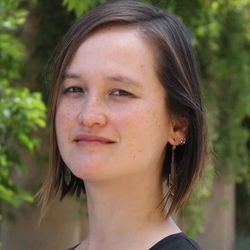
147. The Body Digital
43:27||Ep. 147Vanessa Chang builds communities and conversations about art, technology, people, and planet. She writes, curates, and teaches about new and old media, the history and philosophy of technology, design, disability and creative access, cities, comics, animation, circuses, and more. She is Director of Programs at Leonardo, the International Society for the Arts, Sciences, and Technology. She earned a Ph.D. in Modern Thought and Literature from Stanford University, where she was a Geballe Fellow at the Stanford Humanities Center and also ran the Graphic Narrative Project. She's also taught in Visual & Critical Studies at California College of the Arts and was lead curator with CODAME Art & Tech. She grew up in Singapore and Australia and is now based in San Francisco. Her first book, The Body Digital: A Brief History of Humans and Machines, from Cuckoo Clocks to ChatGPT, will be published on 4 November 2025.
146. The Case for Curiosity
56:14||Ep. 146Tinsley Galyean, Author of Reframe is a technologist, designer, and co-founder of Curious Learning, a global nonprofit dedicated to eradicating illiteracy. He holds a PhD from the MIT Media Lab and works at the intersection of education, storytelling, and digital innovation, creating interactive experiences for museums and programing for networks like Discovery Kids, Disney, and Warner Bros.Under Galyean’s leadership, Curious Learning has made its literacy apps available in 60 languages, reaching children in diverse communities worldwide, many with little or no access to formal schooling. By partnering with parents, educators, NGOs, and governments, the organization has helped children in some of the most resource-constrained settings begin their reading journey. Curious Learning’s work is recognized for its commitment to mother-tongue instruction and its focus on data-driven evaluation to ensure real, lasting impact.LInks:https://www.businessexpertpress.com/books/reframe-how-curiosity-and-literacy-can-redefine-us/https://www.curiouslearning.org/https://medium.com/authority-magazine/high-impact-philanthropy-tinsley-galyean-of-curious-learning-on-how-to-leave-a-lasting-legacy-with-1c9b04d7b6fc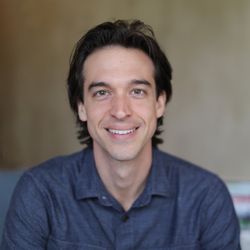
145. If Everyone Is a Power User: Matt Dalio on Democratizing Technology
01:00:08||Ep. 145Matt Dalio is the founder of Endless, a visionary initiative dedicated to empowering youth to become creators of technology rather than passive consumers. His work spans three pillars: Endless Studios, a youth game-making studio; Endless Access, which tackles device affordability and connectivity; and Endless OS, an education-focused operating system designed to teach coding and digital skills through games.Matt’s journey began with formative experiences in China, where he founded the China Care Foundation as a teenager to support orphans—an early signal of his lifelong commitment to equity and empowerment. He’s also the son of Ray Dalio, founder of Bridgewater Associates, and credits his father’s ethos of purpose-driven work as a guiding influence, while forging his own path in education and technology.In 2024, Matt announced a major partnership with Arizona State University to launch the Endless Games and Learning Lab, a $5M initiative aimed at scaling personalized, game-based learning for millions of students worldwide.Links:Media Kit / Bio:https://kitcaster.com/matt-dalio/Social:https://www.linkedin.com/in/mattdalio/Website:https://www.endlessstudios.com/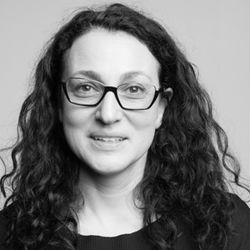
144. Greedy Algorithms, Public Goods: Rethinking AI Regulation and Education
58:52||Ep. 144Dr. Julia Stoyanovich is Institute Associate Professor of Computer Science and Engineering, Associate Professor of Data Science, Director of the Center for Responsible AI, and member of the Visualization and Data Analytics Research Center at New York University. She is a recipient of the Presidential Early Career Award for Scientists and Engineers (PECASE) and a Senior member of the Association of Computing Machinery (ACM). Julia’s goal is to make “Responsible AI” synonymous with “AI”. She works towards this goal by engaging in academic research, education and technology policy, and by speaking about the benefits and harms of AI to practitioners and members of the public. Julia’s research interests include AI ethics and legal compliance, and data management and AI systems. Julia is engaged in technology policy and regulation in the US and internationally, having served on the New York City Automated Decision Systems Task Force, by mayoral appointment, among other roles. She received her M.S. and Ph.D. degrees in Computer Science from Columbia University, and a B.S. in Computer Science and in Mathematics & Statistics from the University of Massachusetts at Amherst.Links:https://engineering.nyu.edu/faculty/julia-stoyanovich https://airesponsibly.net/nyaiexchange_2025/
143. Debugging Efforts in CS Education
01:00:29||Ep. 143Guest Diane Levitt shares how Cornell Tech, in collaboration with the City of New York, is reimagining computer science education through an equity-first approach. From pilot programs that stumble to systems that scale, this episode explores how institutional iteration—especially when it fails—can lead to more inclusive and impactful CS learning.Links:https://www.prnewswire.com/news-releases/2024-state-of-computer-science-education-highlights-growing-investment-from-policymakers-continued-gaps-in-access-302282502.htmledc.nyc/press-release/nycedc-and-cornell-tech-advance-new-new-york-initiative-establish-new-york-cityedc.nyc/program/pilot-new-york-citypar.nsf.gov/servlets/purl/10101543https://tech.cornell.edu/about/https://www.linkedin.com/feed/update/urn:li:activity:7344464344660811780/https://csteachers.org/what-is-the-state-of-cs-education-in-2024/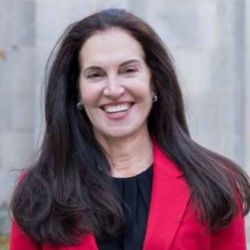
142. The Data Beyond Seat Time
45:38||Ep. 142In this episode of No Such Thing, I talk with Laura Slover, Managing Director of the Skills for the Future initiative—a joint effort by ETS and the Carnegie Foundation. We explore what it means to move beyond the century-old Carnegie Unit and toward a system that captures the full spectrum of what learners know and can do.From internships to outdoor leadership, from dashboards to transcripts that actually reflect growth—this conversation is for anyone thinking about how we build a more human, equitable, and future-ready education system.Links:Sasha Bruce Youthwork https://www.sashabruce.org/https://aschoolwithoutwalls.org/https://www.hightechhigh.org/ETS's official Skills for the Future page – This outlines the initiative’s goals, including competency-based learning and skill recognition, backed by ETS’s expertise in educational measurement.Carnegie Foundation’s Skills for the Future initiative – A deep dive into how the program is shifting education from time-based to competency-based learning, with a focus on essential skills beyond traditional academics.Indiana State Board of Education report – A detailed research paper discussing the transition from time-based education models to skill-based insights, highlighting the empirical evidence supporting this shift.Explainer on modern skills-based assessment – A paper from Carnegie Foundation discussing the limitations of traditional assessments and how Skills for the Future is innovating measurement techniques.ETS & Carnegie’s framework for durable skills – A breakdown of the essential skills identified for success across life domains, emphasizing developmental skill progressions and personalized learning.https://www.carnegiefoundation.org/resources/publications/carnegie-unit/https://eric.ed.gov/?id=EJ1057177https://nces.ed.gov/fastfacts/display.asp?id=38https://www.nagb.gov/news-and-events/news-releases/2025/nations-report-card-decline-in-reading-progress-in-math.htmlhttps://christophegaron.com/articles/mind/how-do-kids-change-during-the-summer-insights-on-summer-growth-in-children/https://www.tulsakids.com/brains-on-break/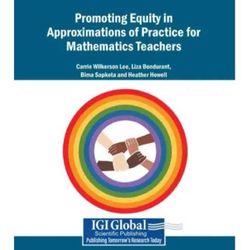
141. Can Simulation Train Equitable Teaching?
52:53||Ep. 141Exploring how simulations are shaping education research and practice, with insights from the book Promoting Equity through Approximations of Practice in Mathematics Education. It examines how approximations of practice can help educators sharpen their skills while keeping equity at the forefront. It’s not just about improving instruction; it’s about ensuring that all students, regardless of background, have access to high-quality learning experiences.Links:Lee, C., Bondurant, L., Sapkota, B., Howell, H. (2025). Promoting equity in approximations of practice for mathematics teachers. IGI Global. https://doi.org/10.4018/979-8-3693-1164-6Benoit, G., Barno, E., & Reich, J. (2025). Simulating Equitable Discussions Using Practice-Based Teacher Education in Math Professional Learning. In C. Wilkerson Lee, L. Bondurant, B. Sapkota, & H. Howell (Eds.), Promoting Equity in Approximations of Practice for Mathematics Teachers (pp. 165-200). IGI Global Scientific Publishing. https://doi.org/10.4018/979-8-3693-1164-6.ch008 Shaughnessy, M., Boerst, T. A., Garcia, N., & Claiborne, B. (2025). Orienting to Student Sense-Making: Using Simulations to Support the Development of Equitable Mathematics Teaching. In C. Wilkerson Lee, L. Bondurant, B. Sapkota, & H. Howell (Eds.), Promoting Equity in Approximations of Practice for Mathematics Teachers (pp. 253-276). IGI Global Scientific Publishing. https://doi.org/10.4018/979-8-3693-1164-6.ch011 Howell, H., Shaughnessy, M., Stengel, B., Lee, C., Bondurant, L., Sapkota, B., Benoit, G., & Lai, Y. (2025). Editorial insights: Reflections on the volume and charge to the field. In C. Lee, L. Bondurant, B. Sapkota, & H. Howell (Eds.), Promoting equity in approximations of practice for mathematics teachers (pp. 395-414). IGI Global. https://doi.org/10.4018/979-8-3693-1164-6.ch017Ataide Pinheiro, W., Kaur Bharaj, P., Cross Francis, D., Kirkpatrick Darwin, T., Esquibel, J., & Halder, S. (2025). An Investigation of Gender Biases in Teacher-Student Interaction in Mathematics Lessons Within a Virtual Teaching Simulator. In C. Wilkerson Lee, L. Bondurant, B. Sapkota, & H. Howell (Eds.), Promoting Equity in Approximations of Practice for Mathematics Teachers (pp. 201-228). IGI Global Scientific Publishing. https://doi.org/10.4018/979-8-3693-1164-6.ch009 MIT’s Teacher Moments digital simulation platform: https://teachermoments.mit.edu/ Becoming a More Equitable Educator https://openlearninglibrary.mit.edu/courses/course-v1:MITx+0.503x+T2020/about Reich, J. (2022). Teaching drills: Advancing practice-based teacher education through short, low-stakes, high-frequency practice. Journal of Technology and Teacher Education, 30(2), 217-228. https://doi.org/10.70725/023707spaywm Bima’s lit review: https://doi.org/10.1080/14794802.2023.2207088
140. The Movement for Digital Wellness
57:58||Ep. 140For decades, the conversation around youth and technology has been dominated by powerful voices—media, researchers, and word-of-mouth warnings—painting a picture of digital tools as the looming threat to young people’s well-being. But what if that narrative isn’t the whole story? What if, instead, we favored the spectrum of possibilities in the digital present and future, instead of a good or evil binary. It would take a a vibrant counter-movement, led by passionate advocates and young people themselves, determined to reclaim the digital world for good. And good news, there is one.This episode was recorded live at Sesame Workshop, bringing together a true who's who of leaders and do-ers in the world of “Digital Wellness for Young People.” At the heart of our conversation is Young Futures—a startup initiative funding projects through the crucial lens of digital wellness. Young Futures is empowering the next generation to create, innovate, and advocate for a healthier digital landscape, supporting ideas that prioritize well-being over profit.Joining us are visionaries from the Scratch Foundation, the organization behind the world’s largest free creative coding platform for kids, empowering millions to express themselves and solve problems through technology. We’re also honored to welcome leaders from the Joan Ganz Cooney Center, a research and innovation lab that advances learning in a digital age, inspired by the pioneering spirit of Sesame Street.Links:https://www.youngfutures.org/https://joanganzcooneycenter.org/initiative/ritec/https://www.scratchfoundation.org/https://joanganzcooneycenter.org/initiative/well-being-by-design-fellowship/https://www.gamesforchange.org/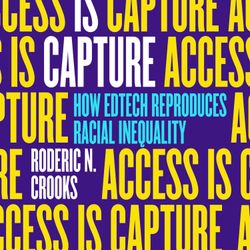
139. Access is Capture: How Edtech Reproduces Racial Inequality
01:01:23||Ep. 139Roderic Crooks is an associate professor in the Department of Informatics at the University of California, Irvine. His research examines how the use of digital technology by public institutions contributes to the minoritization of working-class communities of color. His current project explores how community organizers in working-class communities of color use data for activist projects, even as they dispute the proliferation of data-intensive technologies in education, law enforcement, financial services, and other vital sites of public life. He has published extensively in HCI, STS, and social science venues on topics including political theories of online participation, equity of access to information and media technologies, and document theory. He is the author Access Is Capture: How Edtech Reproduces Racial Inequality, published in 2024 by the University of California Press (https://www.ucpress.edu/books/access-is-capture/paper). Access is Capture Racially and economically segregated schools across the United States have hosted many interventions from commercial digital education technology (edtech) companies who promise their products will rectify the failures of public education. Edtech's benefits are not only trumpeted by industry promoters and evangelists but also vigorously pursued by experts, educators, students, and teachers. Why, then, has edtech yet to make good on its promises? In Access Is Capture, Roderic N. Crooks investigates how edtech functions in Los Angeles public schools that exclusively serve Latinx and Black communities. These so-called urban schools are sites of intense, ongoing technological transformation, where the tantalizing possibilities of access to computing meet the realities of structural inequality. Crooks shows how data-intensive edtech delivers value to privileged individuals and commercial organizations but never to the communities that hope to share in the benefits. He persuasively argues that data-drivenness ultimately enjoins the public to participate in a racial project marked by the extraction of capital from minoritized communities to enrich the tech sector.Links:Amazon listing for Access Is CaptureUniversity of California Press page for Access Is CaptureAuthor's personal websiteTalks and events from Civics of Technology featuring Roderic N. CrooksArticle co-authored by Crooks discussing intersectional themes in feminist formations